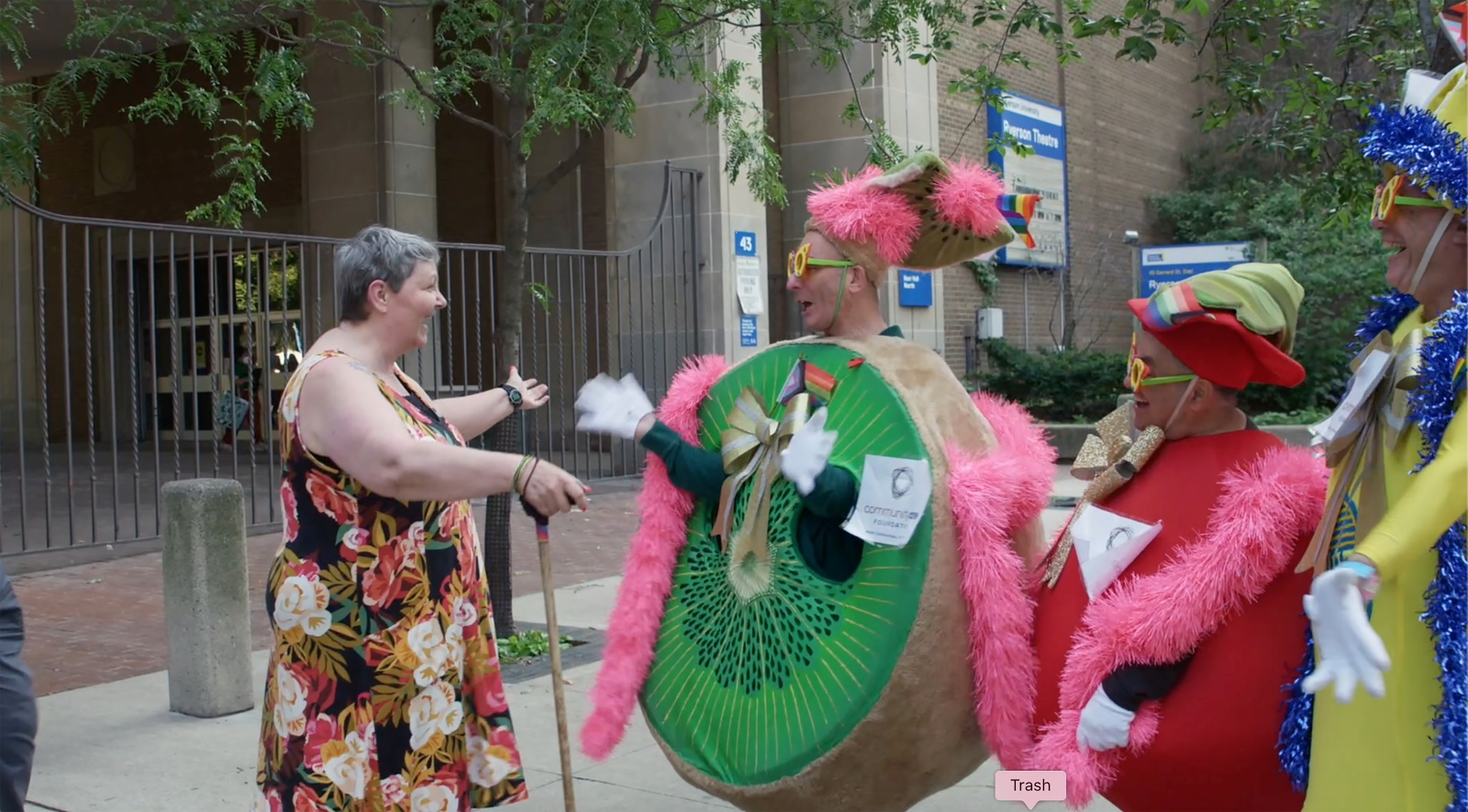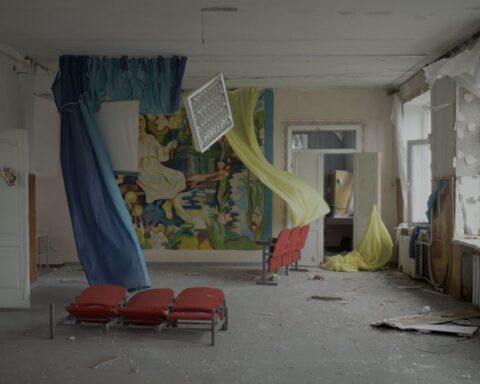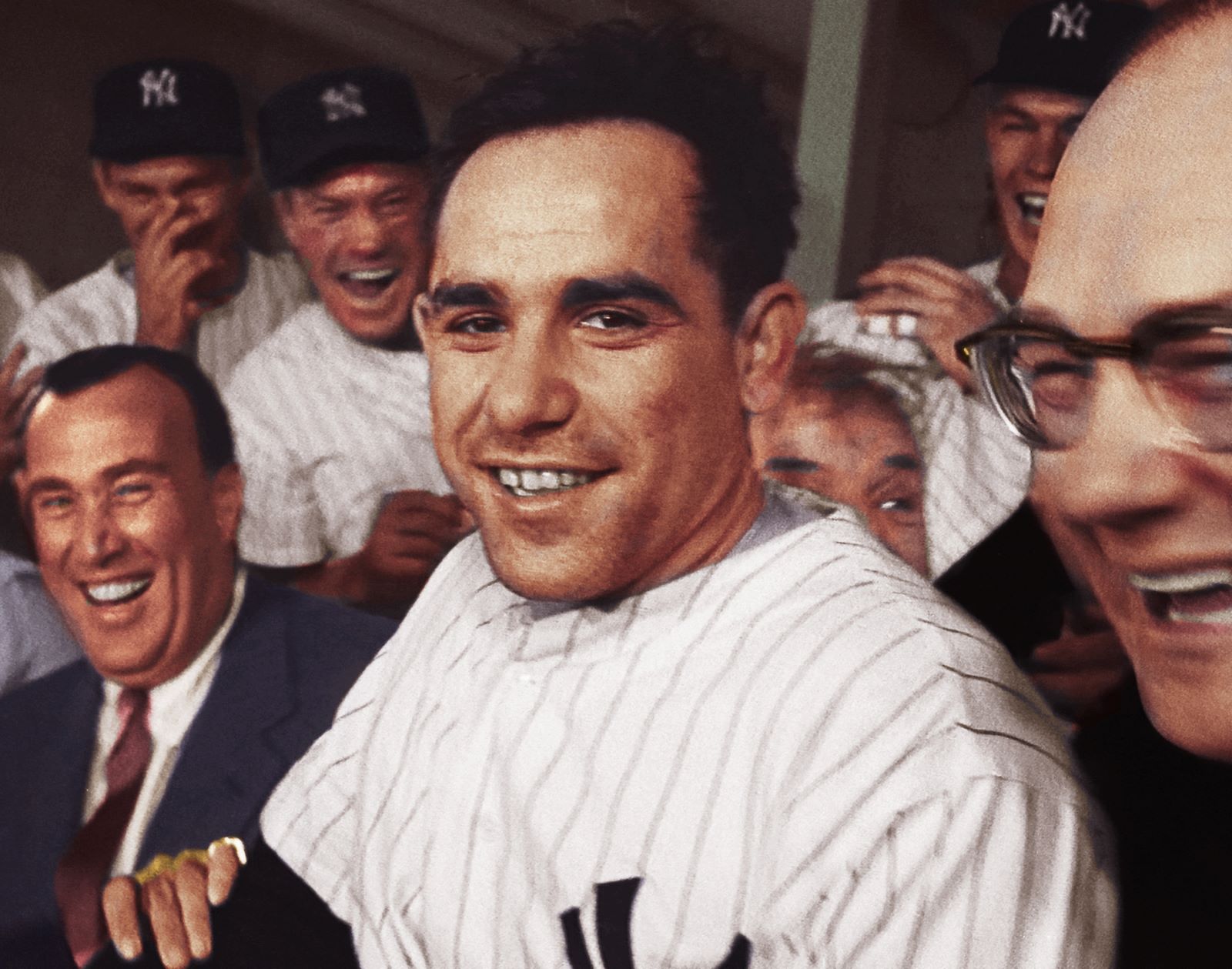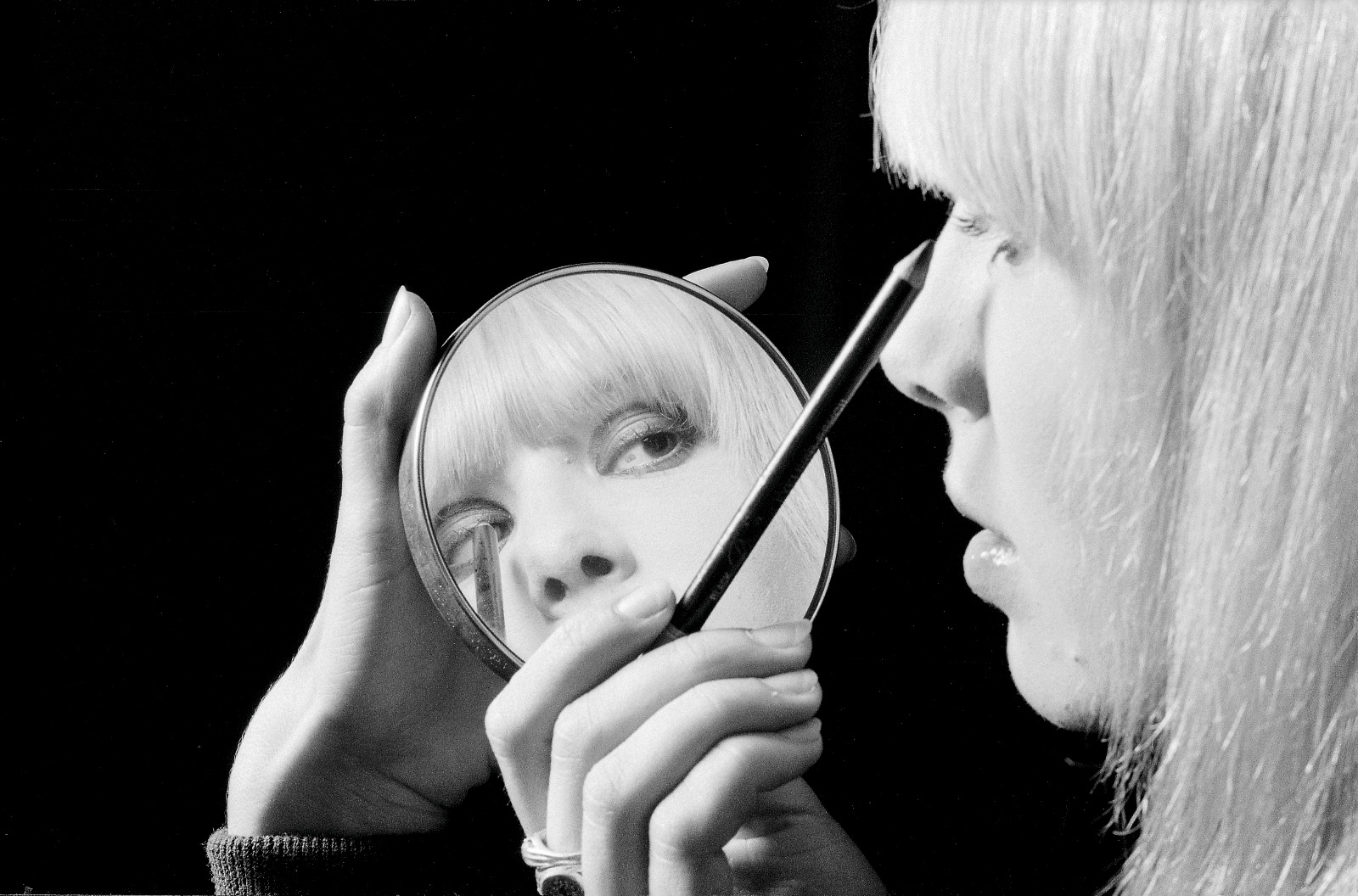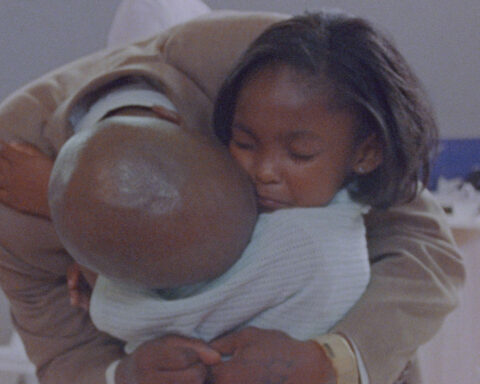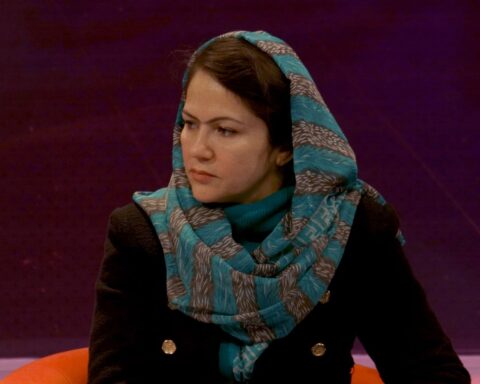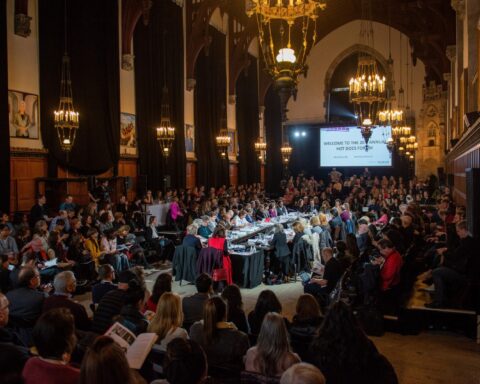The story of Community One hasn’t been in the closet, but has been hiding in plain sight. Supporting Our Selves, a documentary premiering as the centrepiece gala at Toronto’s Inside Out LGBTQ+ Film Festival, salutes the group that helped create a sense of community for queer Torontonians. Directed by Lulu Wei and produced by Jenn Mason, Supporting Our Selves connects the history of contemporary queer life in Toronto with the stories of the group behind bedrocks of the community. The film tells how organisations such as Buddies in Bad Times Theatre, Pink Triangle Press, The 519, The ArQuives, Inside Out, and others emerged through the “Saving Our Selves” fundraisers that Community One held in members’ homes.
Wei and Mason, speaking with POV via Zoom, admit that they hadn’t heard about Community One, originally named The Gay Community Appeal when it was founded in 1980, but were familiar with its work. “We quickly learned about their impact and how many organisations they’d helped in the early days,” says Mason. “I’m a queer person who grew up in Toronto and had never heard of them, so that felt really strange. It was interesting to explore and learn how big their impact has been over the years.”
Mason says she looked into Community One at the suggestion of executive producer Philip Kocev and approached Wei to direct. Wei’s first feature, the Honest Ed’s doc There’s No Place Like This Place, Anyplace, also examines Toronto’s history and sense of community.
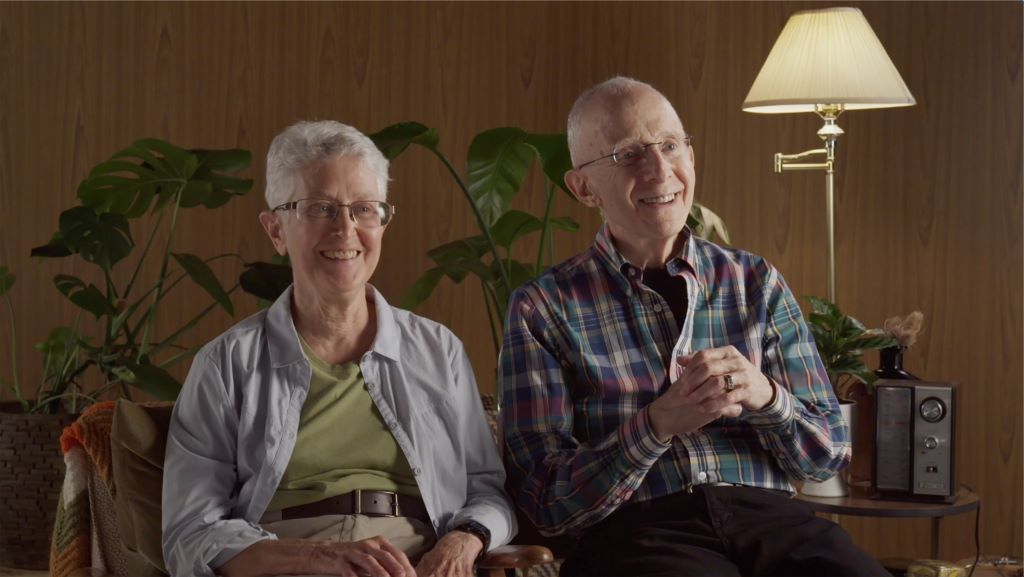
“When I started thinking about the story as a whole and what was happening with the queer community, I was trying to figure out the storyline,” explains Wei. “I quickly realized it’s a film about community, but this one is obviously very close to me because it’s my community and I wanted to learn more about the queer history of Toronto.”
An Intergenerational Approach to History
Saving Our Selves reflects the desire of two younger queer Torontonians drawing upon the history of previous generations. The documentary takes an intergenerational approach to the talking heads format by engaging with founding members of Community One, as well as younger Torontonians creating community in ways that echo the organization’s mission. Veterans like Harvey Hamburg and Rosemary Barnes speak about the early days of Community One, while activists like leZlie lee kam tell how, as a queer Black woman, didn’t fit into a community that largely reflected the perspectives of white, cisgender, and often male Torontonians.
“When I was working on this, I realised that a lot of the history I was learning about is about saw Toronto through the lens of an older white generation, and that’s not necessarily my history,” observes Wei. The director says they knew leZlie beforehand, having met her on a panel, and they found the Trinidadian activist an ideal subject. In the film, leZlie talks about creating space for people like her then and now, having been one of few Black voices on support lines for queer people.
Supporting Our Selves shows leZlie as active as ever as she works to ensure that aging LGBTQ+ people have a place in Toronto’s community. The film sees her recognised as one of the cities queeroes as she receives the 2021 Steinert & Ferreiro Award from Community One. “She’s such a powerful force and she told the history that I felt was really missing, especially for queer BIPOC folks,” says Wei.
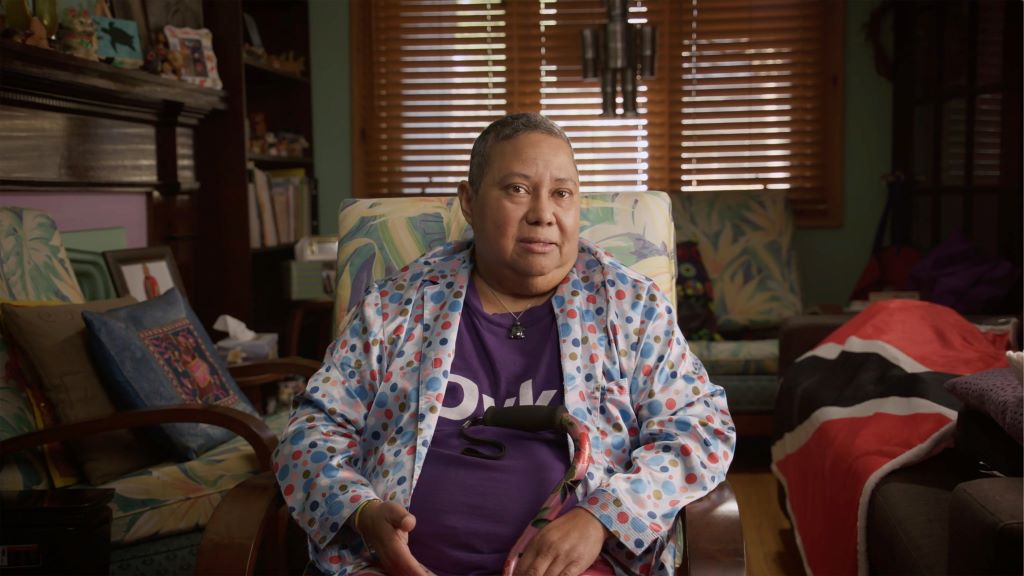
Moreover, the varying sides of the story reflect a need for togetherness in Toronto’s queer scene in the 1980s when bathhouse raids shook up the city with AIDS devastating the community shortly thereafter.
“There are events like the Pussy Palace raids that tell history, and queer folks who are in my generation and even younger wouldn’t know about them,” notes Wei. “I think it’s important to have an intergenerational dialogue and interweave the present with the past.”
Inclusion and Intersectionality
The film includes Millennial and Gen Z perspectives as well. Participants include Jay Baldwin, who runs the Disabled Queer and Fabulous Facebook page and is leZlie’s peer in a youth-elders group, and Christopher Nkambwe, a transgender Ugandan and CEO of The African Centre for Refugees in Ontario-Canada. Jay inspires queer people with disabilities to claim their space in the scene and harnesses the power of social media to encourage visibility and body positivity. Christopher, meanwhile, mentors new Canadians while connecting with her husband back home via video calls. As she shares stories of the very real threats about being visibly queer in Uganda, her tale illustrates how her work echoes the spirit of Community One by building a network for queer people to support each other.
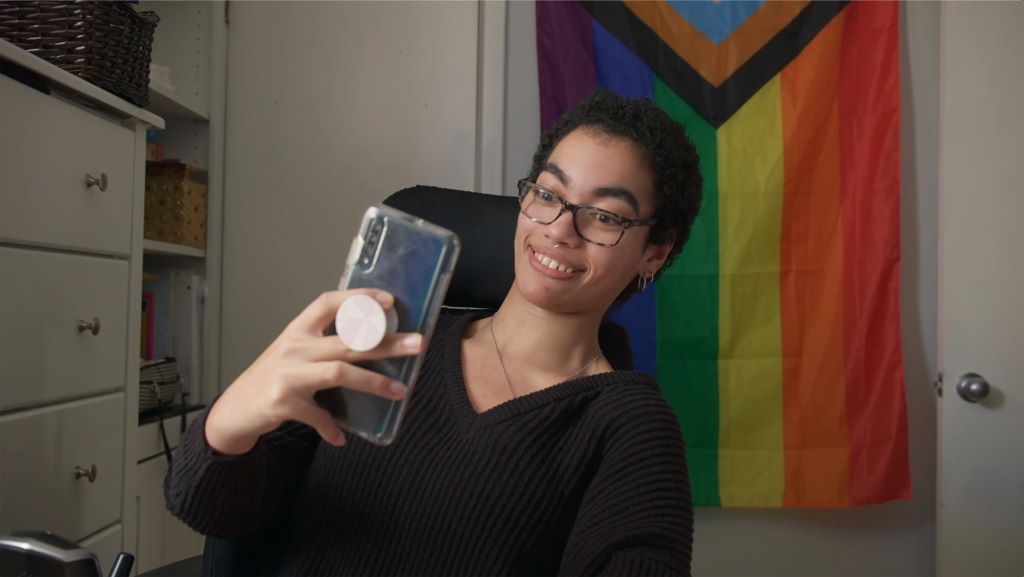
The filmmakers admit that representing the range of experiences in Toronto’s queer scene was something they had to confront while keeping Community One’s story at the core of the film. “We enter the story from the lens of Community One and from Lulu’s perspective, and we could see where those two lenses could take us,” says Mason. “As filmmakers, you do your best while also recognizing that it’s impossible to include everyone.”
“We wanted to umbrella the queer community, but at the same time, a lot of folks are happy with having niche groups represent themselves,” adds Wei.
The film also reflects this desire through the use of inclusive language, offering characters’ pronouns on title cards alongside their names and titles. It’s a growing trend in documentaries committed to authentic storytelling, with films like Out in the Ring and Black Barbie doing the same. But in addition to giving audiences tools to discuss the subjects respectfully, they afford a greater sense of the characters themselves with leZlie, for example, identifying as “gender mysterious.”
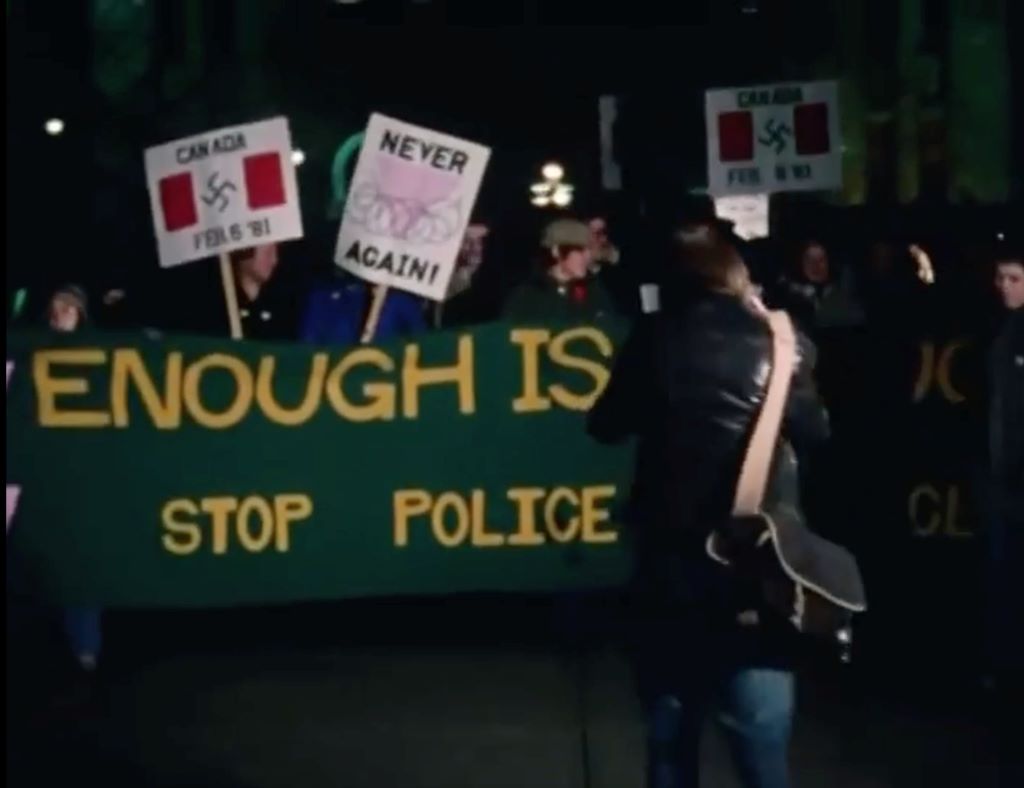
Bridging Past and Present
Supporting Our Selves looks back at the history of Community One gatherings and fundraisers alongside recent events that inspire tough conservations about the politics of inclusion/exclusion. The doc culminates with the 2016 situation in which Black Lives Matter Toronto held up the Pride Parade in part to protest the presence of police officers at the event. Rosemary and Harvey debate the appropriateness of the protest in the doc, while younger voices underscore the activists’ request that events like Pride be more reflective of the diversity of experiences among queer people.
“From the beginning, Lulu and I were really looking at the differences and the similarities between the community now and the community in the past, and the conversation around evolution and change,” adds Mason. “When we started to look at how the community has evolved, there are key events that have driven change that you can’t tell the story without talking about.”
However, as Supporting Our Selves culminates with images of Pride celebrations and the many complexities they entail, the documentary illustrates how focal points in queer history often emerge from hardship.
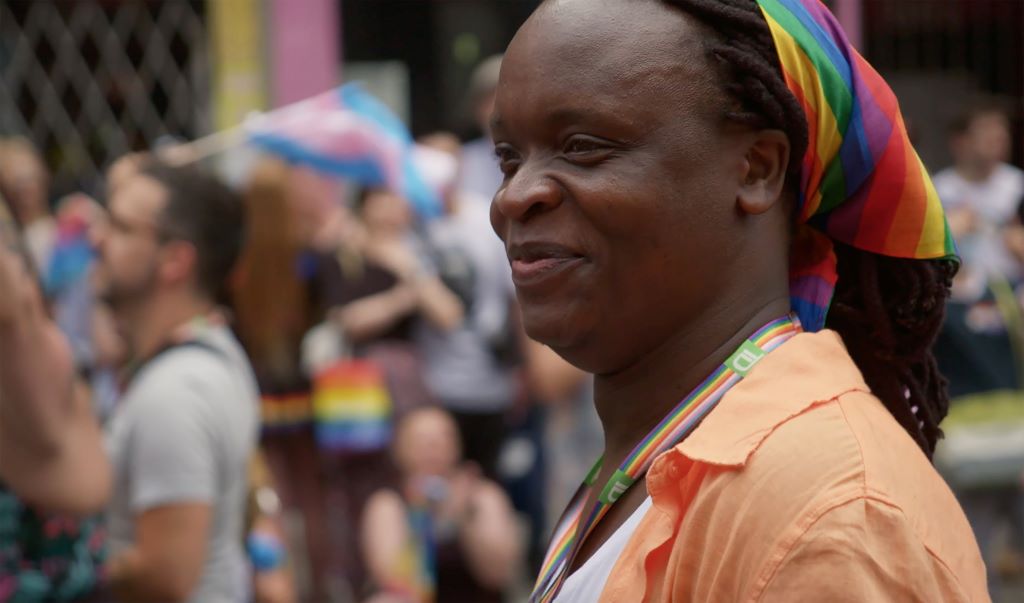
“We wanted it to feel like a galvanizing thing and a driving force rather than a re-traumatizing one,” says Wei. “We also have queer joy in the film, like just seeing Fruit Cocktail was amazing!” Footage from the Community One event shows queer Torontonians take ownership of the term “fruit” by dressing up as apples, grapes, bananas, and the like for a fun community fundraiser. “I think people would love to have an event like that now. I would want to go to it,” laughs Wei. “Part of the history is showing aspects of queer joy that we missed out on, like the S.O.S. nights and how they had secret know-by-mouth gatherings in friends’ living rooms to support each other and get donations for the community. It seemed like this magical time where there was joy though there was so much turmoil.”
“Ending on Pride helps that as well,” adds Mason. “Many parts of the community choose to come together, and it was useful to hear everyone talk about it as a moment of celebration even though there are still fights.”
Supporting Our Selves ultimately offers a message of togetherness for Toronto’s queer community. It reminds audiences to take the lesson of Community One to heart and see that there’s more that unites us than divides us. “One thing I heard while making the film is that a lot of people said that it won’t be an outside force that would destroy the community. It would be our community fighting against each other,” notes Wei. “I think there is a lot of conflict within the queer community, but leZlie always talks about taking care of our community and the different parts of our community because if we don’t support ourselves, who’s going to?”
Supporting Our Selves screens at Inside Out on May 30 at 6:45 pm at TIFF Bell Lightbox.
It airs on OutTV on June 17.




